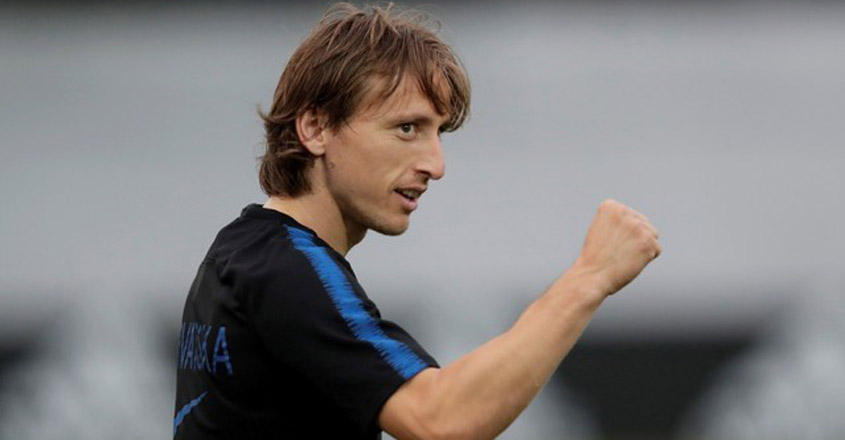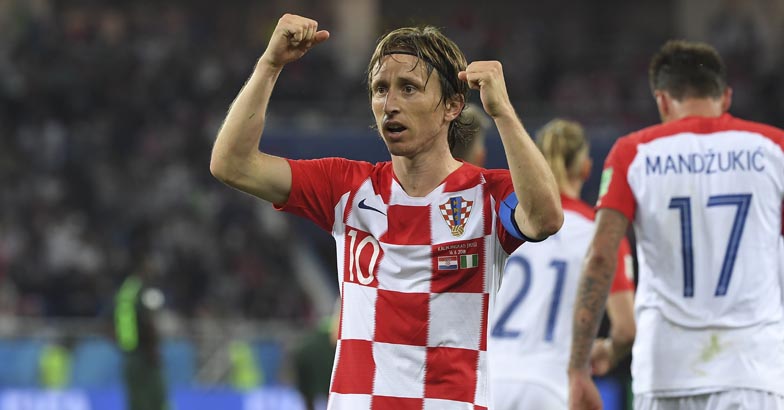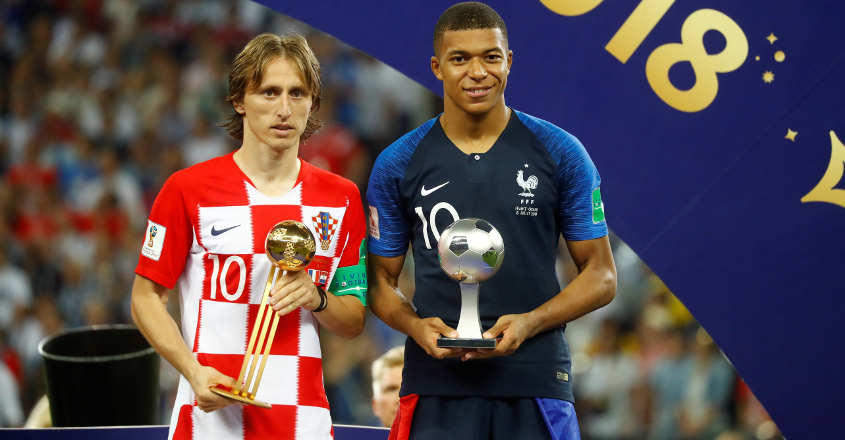
War, murder, poverty, homelessness – Luka Modric had come across all these at a very young age. So, when he stood on the stands holding the trophies for FIFA World Cup runners-up and the Golden Ball laurel for the best player of the coveted tournament, it was a historic moment and the rounding of poetic justice for the Croatia soccer captain.
Modric's run up to the final stage of the highest platform of international football was not easy at all. When Modric was just six years old, his family became refugees. On December 8, 1991 Serbian militants attacked Modric's hometown of Modrici and shot down his grandfather Luka Modric Snr. His home was burnt to the ground and his family was forced to flee for their lives.

Modric Snr was walking his cattle up an abandoned street when he was cornered by a group of Serbians who brutally executed him along with five other locals. The Serbian militia wanted to clear the area of Croatian families who refused to leave the place amid the tension.
The memories of the bloodstained days have never gone away from Modric as he has repeatedly recollected those bitter experiences. "When the war started we became refugees, and it was a really tough time. I was six years old. These were really hard times. I remember them vividly, but it’s not something you want to remember or think about," he had said in a 2008 interview.
Modric was being raised by his grandfather while his parents Stipe and Radojka worked in a factory to support the family financially.
After being uprooted from their home, Modric and his family moved to the city of Zadar where they struggled to make both ends meet. The family lived in a shelter, which was once a hotel, for many years.
Modric, as per reports, grew up practicing soccer in empty parking lots where often he heard grenades in the background. Despite the unimaginable difficulties, Modric says the challenges indeed made him stronger.
“The war made me stronger, it was a very hard time for me and my family. "I don’t want to drag that with me forever, but I don’t want to forget about it either,” he said.
On Sunday, Modric said being awarded the Golden Ball for the World Cup's best player was "bittersweet" after losing the final 4-2 to France. "Obviously I liked the recognition and thanks to those who chose me, but clearly I would have preferred to have won the World Cup," said the Real Madrid midfielder.

"It wasn't to be and now we will rest and in the coming days celebrate this because it is still a huge thing for Croatia, but right now the feeling is bittersweet. "We are proud of what we have done, but a bit sad at losing the final."
Despite being forced into extra-time in all three of their knockout rounds before the final, Croatia dominated the opening period and were desperately unlucky to trail 2-1 at half-time through Mario Mandzukic's own goal and a controversial Antoine Griezmann penalty. The smallest country to make a World Cup final in 68 years, with a population of just over four million, finally wilted after the break as Paul Pogba and Kylian Mbappe added to France's lead before Mandzukic pulled a goal back.
(With inputs from AFP)
